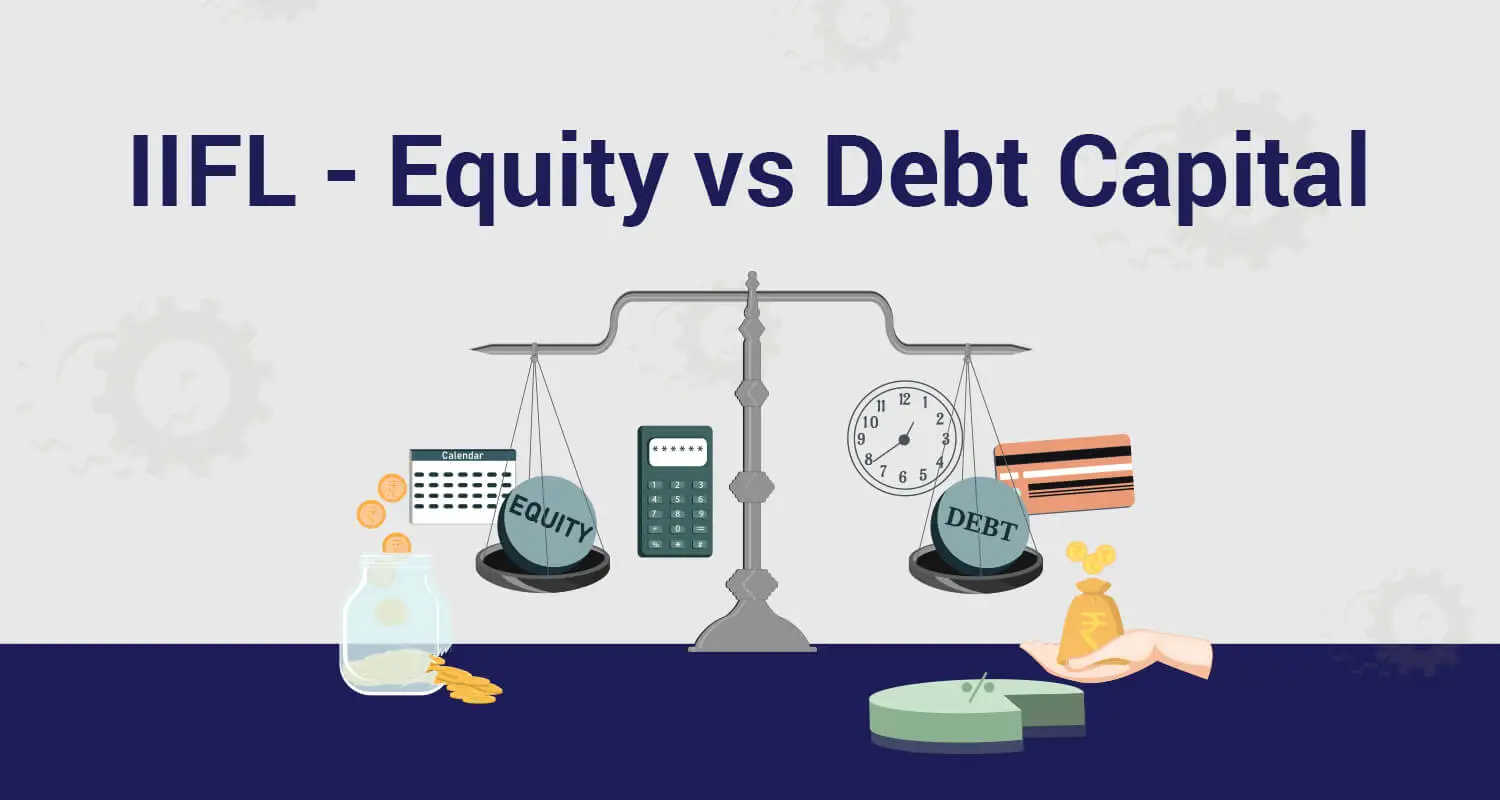Equity Vs Dept Capital: What's the Difference

A business idea is just an idea without the right financing. And, to actualize it into a business, and to grow the company, you need to raise funds. Raising funds can be categorised into two options; Debt capital and Equity capital.
What is Debt Capital?
Debt capital is money borrowed by a company from external sources, such as banks, financial institutions, or bondholders. This borrowed money comes with a contractual obligation to repay the principal amount along with interest at a specified rate and time. Common forms of debt financing include loans, bonds, and debentures.
What is Equity Capital?
Equity capital is raised by selling ownership shares of a company to investors. These investors become shareholders and part-owners of the company. Unlike debt, equity capital does not require repayment. However, shareholders become entitled to a portion of the company's profits and have voting rights in company decisions.
Though companies have a choice whether to go for debt or equity capital or to use the strategic combination of both funds, sometimes it depends upon a few factors like cash flow, funding accessibility, maintaining the control of the company to its owners, the credibility of the business, and future profitability.
To understand it better, let’s look at the different kinds of sources of each capital.
Different Kinds of Sources for Debt Capital and Equity Capital
Debt capital sources are term loans, business lines of credit, credit cards, personal loans, peer-to-peer lending services and SBA loans.
Equity capital sources are Angel investors, crowdfunding, corporate investors and initial public offerings.
Now that we have a fair idea of equity and debt capital, let’s examine the key differences between the two funds.
Sapna aapka. Business Loan Humara.
Apply NowDifference Between Debt Capital and Equity Capital
| Debt Capital | Equity Capital |
|
Borrowed by a company from external sources (banks, bondholders, financial institutions) |
Raised by selling ownership shares of a company to investors ( Angel investors, Corporate investors, crowdfunding,IPOs) |
|
Principal and interest must be repaid |
Does not require repayment |
|
Lenders do not get ownership of the company |
Investors become shareholders and part-owners of the company |
|
Interest payments are often tax-deductible |
Dividends are not tax-deductible |
Equity capital vs Debt capital with an example.
Riya Dixit, an owner of a fashion boutique, wants to expand her business by opening new stores across the city. That being the case, she needs to raise 50 lacs in capital to fund its growth. So, to obtain this amount, she decided to go for the combination of debt and equity capital.
Now, for the debt component, she decides to take a 70% loan from the bank with a 5% interest rate. And the loan must be repaid within 5 years of tenure. For the equity component, she will sell out the 30% share of her business to the private investors in the company.
There are 3 scenarios
1. If she decides to go for just Debt Financing:
Advantages:- She gets to maintain full ownership.
- She can potentially lower risk if the business performs well.
- There will be a rise in monthly expenses due to loan repayment.
- Her debt burden can affect financial flexibility.
2. If she opts for Equity Capital
Advantages:- She doesn’t have to immediately make thedebt repayment.
- There’s a potential infusion of new expertise.
- Dilution of ownership and control.
- Sharing future profits with investors.
3. If she goes for a combined approach of Debt (70%) and Equity (30%)
Advantages:- She can balance debt and equity risks.
- There’s a potential for additional expertise and capital.
Disadvantages:
- Requires careful management of debt and equity obligations.
So, depending upon the existing factors, a company should opt for the best financing to own a secure business.
Conclusion
If you want to scale up your business, debt and equity capital are the options to raise funds. What suits best for your company depends on various factors like credibility, business goals, a strong portfolio, risk-taking ability and so on. Many companies opt for equity capital initially. Later, when they acquire a strong portfolio or credit score, they take up debt capital or a combination of both.
FAQs
Q1. Should a company choose debt capital over equity capital?Ans. A company can opt for debt capital if it doesn’t want to give up any part of its share of future profits to its shareholders, and it has the potential to repay the amount within the fixed tenure.
Q2. Which is the cheaper option, debt or equity?Ans. Debt can be cheaper than equity capital, but depending on the company’s performance or circumstances, equity capital can be an inexpensive option too. If your business doesn’t gain any profit and you decide to close the company, you are not liable for repayment. But, if you take a loan from the bank, you have to pay back the amount whether you earn a profit or not. However, in the case of equity finance, if your company earns profit, you need to share the profit with your shareholders. But with a debt fiance, you only pay back the loan and keep the full ownership of the company.
Q3. Which is more risky, debt or equity?Ans. It depends on how your business performs. If your company is not earning a profit, debt capital can be riskier as you have to repay the loan- amount with interest. However, opting for equity capital can be riskier if you can’t secure a good profit for your shareholders and, in return, they can demand cheaper equity by divesting your existing commodity.
Sapna aapka. Business Loan Humara.
Apply NowDisclaimer: The information contained in this post is for general information purposes only. IIFL Finance Limited (including its associates and affiliates) ("the Company") assumes no liability or responsibility for any errors or omissions in the contents of this post and under no circumstances shall the Company be liable for any damage, loss, injury or disappointment etc. suffered by any reader. All information in this post is provided "as is", with no guarantee of completeness, accuracy, timeliness or of the results etc. obtained from the use of this information, and without warranty of any kind, express or implied, including, but not limited to warranties of performance, merchantability and fitness for a particular purpose. Given the changing nature of laws, rules and regulations, there may be delays, omissions or inaccuracies in the information contained in this post. The information on this post is provided with the understanding that the Company is not herein engaged in rendering legal, accounting, tax, or other professional advice and services. As such, it should not be used as a substitute for consultation with professional accounting, tax, legal or other competent advisers. This post may contain views and opinions which are those of the authors and do not necessarily reflect the official policy or position of any other agency or organization. This post may also contain links to external websites that are not provided or maintained by or in any way affiliated with the Company and the Company does not guarantee the accuracy, relevance, timeliness, or completeness of any information on these external websites. Any/ all (Gold/ Personal/ Business) loan product specifications and information that maybe stated in this post are subject to change from time to time, readers are advised to reach out to the Company for current specifications of the said (Gold/ Personal/ Business) loan.



